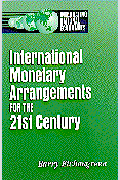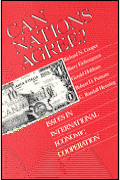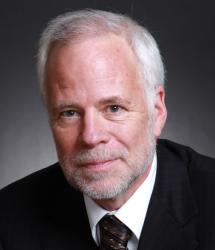


Book
In the age of Three Mile Island and Chernobyl, a new international trade in industrial and human waste, the depletion of the ozone layer, and the greenhouse effect, the importance...
In the age of Three Mile Island and Chernobyl, a new international trade in industrial and human waste, the depletion of the ozone layer, and the greenhouse effect, the importance of international cooperation is supremely evident. In the economic arena, such problems include speculative instability in financial and primary commodities markets, competition in tax regimes, and the greatly enhanced scope for tax evasion. Can Nations Agree? examines the crucial issues surrounding international cooperation– conditions that foster cooperation toward common goals; ways to handle the friction arising from conflicting goals; and the structures that best promote cooperation. Although nations recognize the value of cooperation in an independent world, a variety of conditions inhibit the process. In recent decades the number of independent nations has risen rapidly, and so has the variety of decisionmakers and national interests to be reconciled. At the same time, the economic power of the United States has declined in relation to other successful capitalist countries. In the chapters on the 1978 Bonn economic summit, German macroeconomic policy, international cooperation on public health issues, and hegemony and stability, the scholars contributing to this volume analyze the history and process of international cooperation to offer fresh insight for future efforts.
Related Books

Barry Eichengreen
November 1, 1994
Jerry F. Hough, Evelyn Davidheiser, Susan Goodrich Lehmann
December 1, 2010

Terrence Lyons
December 1, 1998
Authors

Richard N. Cooper is Maurits C. Boas professor of international economics at Harvard University and is associated with its Center for International Affairs. Barry Eichengreen is George C. Pardee and Helen N. Pardee Professor of Economics and Political Science at the University of California—Berkeley. His books include The European Economy since 1945 (Princeton, 2007) and Global Imbalances: The Lessons of Bretton Woods (MIT, 2006). Gerald Holtham is Managing Partner of Cadwyn Capital LLP and former Chief Investment Officer of Morley Fund Management, the investment arm of Aviva PLC. He is currently a Director of the Institute of Welsh Affairs, a visiting Professor at Cardiff University Business School and a member of the Assembly Government's Economic Research Advisory Panel. He was previously Director of the Institute for Public Policy Research. Robert D. Putnam is the Peter and Isabel Malkin Professor of Public Policy at Harvard University and founder of the Saguaro Seminar, a program dedicated to fostering civic engagement in America. He is former dean of the John F. Kennedy School of Government. C. Randall Henning is a visiting fellow at the Peterson Institute for International Economics. He serves on the faculty of the School of International Service at American University.